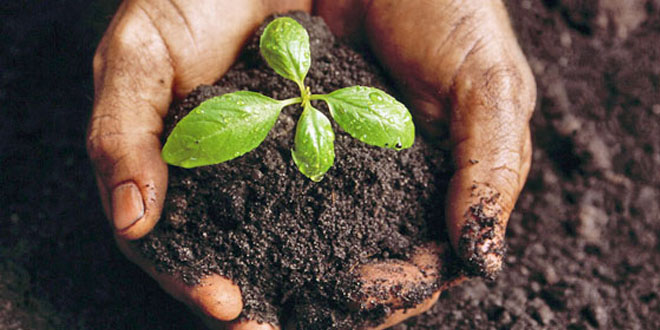The COVID-19 pandemic has indeed brought about major economic,
social and political changes across the globe and life as we know has greatly
changed. Markets, offices, schools and religious houses have been closed; major
streets are now deserted while busy cities have been locked down in different
countries. Amidst the imposition of curfews and restrictions of movement by
various countries, one of the major concerns is how the pandemic impacts the
food system. This is considering the frequent calls on citizens to stock up for
a long haul thus increasing demand for food as well as affected food businesses
that have had to close in the wake of the pandemic. It is now obvious that we
require more than just technology to survive.
A post on the Bloomberg Opinion Instagram handle aptly read, “the Corona Virus reminds us that we’re in our essence… creatures that
cannot bite into bytes, eat algorithms or disinfect with bandwidth, as someone
has to grow, harvest and deliver our food…” This emphasizes that the entire agricultural value chain is dependent on humans who must move from one place to
another, thus, begging the question, how do we survive when availability due to
inactivity becomes a problem?
An interaction with
role-players in the agricultural sector across different countries revealed
that current issues and fears in agriculture at this time include scarcity of agricultural commodities; inefficient supply chains;
food-price volatility arising from the aforementioned as well as rising demands
amidst a shortage of supplies; wastage/loss of agricultural commodities; shortage
of agricultural inputs such as seeds, fertilizers and other agro-chemicals,
considering individuals have since closed down businesses and are remaining at
home; rejected exports due to border closure; slow imports for countries that
depend mainly on imported food items; halted extension services; poor
coordination of agricultural activities; fears of delayed/lost 2020 farming
season; paused research efforts and so much more.
In Nigeria, as soon as the government announced its intention to lock down the three
main States affected by the pandemic viz-a-viz Lagos – the commercial hub of
the country, the Federal Capital Territory (FCT) – the country’s administrative
capital and Ogun State due to its proximity to Lagos State to stem the spread
of the virus, food prices doubled as many traders took advantage of the
opportunity to exploit desperate consumers. Rural farmers on the other hand
have gone ahead with activities in preparation for the 2020 farming season with
an uninformed notion that the Corona Virus is an infection that affects only
the rich. In
addition, certain projects like the PIATA funded Fertilizer Systems
Strengthening Project that seeks to promote the use of crop/site-specific
fertilizers across four commodity value chains in the country has since been
brought to an abrupt halt.
In a joint press briefing
by the Presidential Task Force (PTF), the Federal
Ministry of Health and the Nigeria Center for Disease Control (NCDC), a journalist posed a question at the Federal Government’s representative as to what
its plan was to deal with the Food and Agriculture Organization’s
predictions on looming food crises; while various responses were given, there
was none that addressed this particular question. The FG does have plans beyond
opening up grain reserves to meet the current food demands of the country’s population.
Reports from other parts of Africa show that the virus has not been
spread to rural areas where a bulk of the continents farming population reside
and operate from. In Ethiopia, similar to the case of Nigerian farmers, plans for the forthcoming
farming season is ongoing as the government makes frantic efforts to get
agricultural inputs across to farmers at subsidized rates, while in Zimbabwe reports
of fatality arising from the virus has forced farmers
to shun farming activities. In Kenya, there were reports of
destroyed fresh roses as the pandemic had crashed the commodity’s demand in
Europe although the government has made efforts to provide grains to its
population amidst the lock-down. It is
reported that in Sierra Leone, on the other hand, farmers continue to encounter
difficulties in accessing agricultural inputs.
While it is comprehensible that at the top of our minds is the
urgent need to flatten the COVID-19 curve, also of great importance is the need
to strengthen our food distribution systems. It is therefore imperative for
stakeholders as a matter of urgency, to strategize on ways to ensure steady
food production and supply within and after this period. This we must achieve bearing
in mind the strong words of the Ghanaian President – Nana Akufo-Addo – that ““although we know how to recover our economies after the pandemic, what
we do not know how to do is bring the dead back to life” thus emphasizing the
need to stay at home and strategize on ways to co-exist even as we physically
stay apart in the interim.
Thank you for reading. Please remember to avoid being emotionally
isolated from family and friends. Let’s focus on strengthening bonds even with
the physical distance to maintain sound mental health amid anxiety, fear,
confusion and uncertainty.
The Author
 ''As an agricultural enthusiast, I have long had a passion for contributing my quota to the growth and development of the Nigeria agricultural sector and this birthed an interest in research to see what and how precisely agricultural strategies are implemented in developed economies of the world and how they can be adapted to suit the Nigerian scenario''.
''As an agricultural enthusiast, I have long had a passion for contributing my quota to the growth and development of the Nigeria agricultural sector and this birthed an interest in research to see what and how precisely agricultural strategies are implemented in developed economies of the world and how they can be adapted to suit the Nigerian scenario''.







